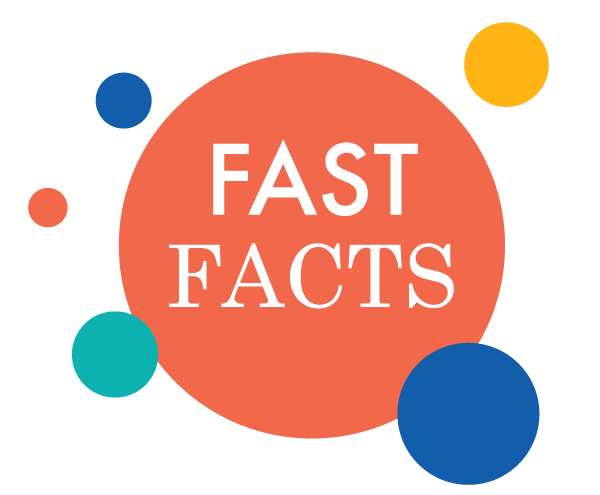The Metabolic Management Program at Children’s Nebraska is the only program in the region that specializes in treating inherited metabolic diseases and childhood bone diseases. We have two separate clinics within the Metabolic Management Program: the Inherited Metabolic Disease Clinic and the Bone Metabolic Disease Clinic.
Make An Appointment
To make an appointment, call 800-833-3100.
The clinics are led by board-certified medical geneticists. Our staff also includes a multidisciplinary team of healthcare professionals, including physical and occupational therapists, dietitians, nurses, nurse practitioners, and radiology technologists, all trained in treating and managing your child’s metabolic disorder.

Did you know that there are just 3 medical geneticists in the state of Nebraska with expertise in inherited metabolic diseases?
Bone Metabolic Disease Clinic
The Bone Metabolic Disease Clinic at Children’s Nebraska is the only program in the region that specializes in treating childhood bone diseases. There are many pediatric bone metabolic diseases, but some of the more common conditions we treat include rickets — particularly the more complex types — osteoporosis, and osteogenesis imperfecta.
Because of our experience and expertise in treating osteogenesis imperfecta, we have a dedicated clinic of healthcare professionals who specialize in this disease.
What Are Bone Metabolic Diseases?
Metabolic bone diseases encompass a large spectrum of disorders that are commonly caused by abnormalities in the way the body metabolizes minerals such as calcium, phosphorus, magnesium, or vitamin D. Some of these conditions are reversible once the underlying defect has been identified and treated; some will stabilize once the bones stop growing, while still others will require lifetime management and treatment. Some bone disorders are also hereditary and may lead to other bone conditions.
We primarily treat the following bone diseases:
-
Osteoporosis
Osteoporosis is a bone disorder that causes the bones to become weak and brittle. Osteoporosis in children is rare and is most often caused by other medical conditions or the medications used to treat them.Common diseases that may lead to pediatric osteoporosis include juvenile rheumatoid arthritis, asthma, hormonal disorders, dermatomyositis (a skin condition), inflammatory bowel disease, muscular dystrophy, or a bone marrow or organ transplant. These conditions are treated with corticosteroids, which can lead to a decrease in bone mass.
In some cases, the cause of osteoporosis is unknown. This is called idiopathic juvenile osteoporosis (IJO).
Children with osteoporosis may complain of aching or pain in the bones, especially the limbs and spine. The bones may also break easily, often from a simple fall or trauma to the bones.
Idiopathic juvenile osteoporosis (IJO) usually occurs in children just before puberty begins, between the ages of 8 and 14. These children can develop symptoms such as fractures in the lower limbs, pain that begins in the lower back and travels to the ankles, and difficulty walking. Idiopathic juvenile osteoporosis commonly lasts about 2 to 4 years and may then go away without causing any permanent disability or growth problems.
-
Rickets
Rickets is an abnormality that causes a child’s bones to become soft, leading to fractures and deformities. There are many kinds and causes of rickets.The most common form of childhood rickets is caused by vitamin D deficiency due to a poor diet and/or lack of exposure to sunlight. Lack of calcium in the diet may also lead to rickets.
Genetic forms of rickets are due to diseases in the metabolism of vitamin D, calcium, or phosphorus. As a result, the bones do not have the proper vitamins and minerals to grow and develop appropriately. Rickets is one of the most common childhood diseases in many developing countries.
When rickets develops in infants, the entire skull may be soft. Older infants may be slow to crawl or walk. As your child grows, the rest of the bones become soft and begin to grow abnormally. The legs may bow and a curve may form in the spine.
Inherited Metabolic Disease Clinic
The Inherited Metabolic Disease Clinic at Children’s Nebraska provides specialized medical expertise for the diagnosis and treatment of pediatric inherited metabolic diseases.

- There are hundreds of inherited metabolic diseases, each of which is rare, but together they affect about 1 in 1,000 children in this country.
- Each year, about 12 infants are diagnosed with an inherited metabolic disease in Nebraska and the surrounding region.
- The Inherited Metabolic Disease Clinic at Children’s treats approximately 400 patients a year.
What are Inherited Metabolic Diseases?
Metabolism refers to the mechanisms our body uses to break down foods and chemicals and then build the molecules we need for normal growth and function. There are thousands of steps in this metabolic process, each requiring its own enzyme.
The majority of childhood inherited metabolic diseases are caused by defects of genes that code for enzymes that are necessary to accomplish each of the many steps in this process. An enzyme deficiency results in either a build up of too many substances that are toxic or interfere with the body’s normal function, or a deficiency of substances that the body needs for normal functioning.
Inherited metabolic diseases can affect virtually all organs in the body and can cause a wide range of symptoms.
Diagnosis
Because of the enormous number of pediatric metabolic diseases, their individual rarity, the varying symptoms, and the wide range of body systems affected, diagnosis may be very difficult. Diagnosis involves specialized medical testing and a process of elimination to rule out other possible conditions first.
Our clinic uses a variety of advanced tests that are sent to specialized labs to screen for abnormalities that would indicate a metabolic disorder. A proper diagnosis is critical in order to properly treat the disease.
Newborn Screening
Newborns in the US are screened for around 30 genetic diseases at the time of birth through what is called a Newborn Screening Panel. Most of these diseases are inherited metabolic disorders that can be life-threatening or cause serious symptoms if left untreated. These symptoms can begin weeks or even months after the baby is born.
Some of these diseases include phenylketonuria, galactosemia and biotinidase deficiency. Infants who test positive for a metabolic disease on their newborn screening are referred to the Inherited Metabolic Disease Clinic at Children’s to confirm their diagnosis and begin treatment.
Treatment
In most cases, inherited metabolic diseases in children are lifelong conditions that require lifelong treatment. Without effective treatment, these diseases can lead to developmental problems, neurological complications, neuro-developmental problems, and failure to grow.
Treatment may involve something as simple as changes in the diet, medications, dietary supplements, or a combination of these approaches.
Next Steps
For Patients
To make an appointment, call 800-833-3100.
For Referring Providers
The physicians’ priority line is your 24-hour link to pediatric specialists at Children’s for emergency and urgent consults, physician-to-physician consults, admissions, and transport services. Call 855-850-KIDS (5437).
Learn more about referring patients.




